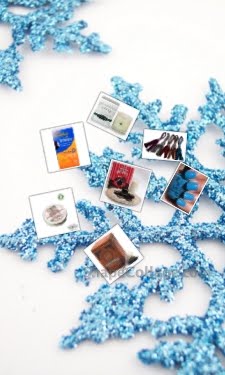
Soy producers have been feeding the American public a big lie! Well, technically they haven’t lied, but you know that obnoxious saying: “I didn’t lie. I just didn’t tell the truth.” Well, that’s pretty much what the soy producers have been doing. Not telling us the truth. You see, soy was initially sold as a food product in the US when soybeans were found to be the best and most inexpensive source for vegetable oil, and the manufacturing of this oil left its producers with an overabundance of waste product (or as you may know it- isolated soy protein.) Sound familiar? That’s because it is the main ingredient in many popular soy foods like soy burgers and soy ice cream. A toxic and carcinogenic waste product! Considering the soy producers had so much of this isolated soy protein on their hands, and disposing of it would lose them money and consequently defeat their purpose of using it, they quickly cooked up a huge marketing plot. One thing that life experience and my marketing degree has taught me is that advertisers can be quite crafty and can have such a strong influence over American decision making. One member of the soy industry was actually quoted as having said “The quickest way to gain product availability in the less affluent society is to have the product consumed on its own merit in a more affluent society.” So that is exactly what they did. Using their knowledge of the health benefits of traditional Japanese fermented soy products like miso and tempeh, they manipulated the American public into believing that their products were just as nutritious and highly coveted. The opposite was true.
In asian cultures, soy is considered healthy to eat as a side dish and only after all of the toxins and phytates (enzymes which block the absorption of necessary minerals) are removed from it by a fermentation process that takes over a thousand years. The Japanese also balance the soy in their diet by serving it along with foods like fish broth which is high in iodine and other minerals that are depleted by soy intake. The American soy products like soy milks, cheeses, and tofu on the other hand, are produced in a way that foregoes this key process so that they may be made quickly, cheaply, and in large quantities. In not fermenting these products, several issues ensue...
For starters, the processing of soy products forms MSG (a neurotoxin known to cause migraines and brain cancer.) Unfermented soy is also goitrogenic. This means it prevents your thyroid from receiving the necessary amount of iodine. When this continues, it can cause hypothyroidism which may then lead to weight gain, fatigue, mood swings, difficulty concentrating, memory problems, and even cause thyroid cancer. As mentioned above, unfermented soy also contains phytates, which not only prevent the body from absorbing the nutrients found in soy such as B12 and vitamin D but they actually increase the body’s requirement for these nutrients. Aside from phytates, soy contains trypsin (an enzyme necessary for protein digestion) inhibitors, aluminum (a metal that is harmful to the nervous system), and hemaglutinin (an antibody which causes blood clots). The trypsin inhibitors can create severe amino acid deficiencies, gastric problems, and not to mention pancreatic cancer. Both trypsin inhibitors, and hemaglutinin have also been found to stunt human growth. Soy also contains high amounts of phytoestrogens (naturally occurring compounds that mimic estrogen within our bodies) which interfere with our body’s endocrine functions. Phytoestrogens are dangerous for women because they promote breast cancer. In men, phytoestrogens may cause infertility, and can create an overgrowth of breast tissue and/or a leaking from the breasts of growing boys. Due to the abundance of phytoestrogens in soy, babies that are fed soy formula/milk are ingesting the equivalent of 4-5 birth control pills a day!! That is 22,000 times greater than a breast fed baby and levels that high can lead to autoimmune thyroid disease. Eating a diet which consists of soy also slows testosterone, which can lead to excess hair growth, considerably lower sperm count, and a lower sex drive. Japanese women would actually serve soy to their men to intentionally decrease their libido! Considering the amount of Viagra and Cialis scripts being handed out left and right by doctors these days, I would guess this would be an undesirable effect in present day western cultures
In Asia, soy only became recognized as a food after fermentation techniques were discovered. So, when U.S. soy manufactures initially made their furtive attempt to market isolated soy protein as a food additive, the FDA was hesitant to approve it. They eventually passed it but only with a “generally recognized as safe” status. Even that questionable status got revoked once scientists started coming forward with their findings of its carcinogenic and toxic components. Now, soy protein may be added to food, but only with pre-market approval for each and every product. I don’t know about you, but that does not make me feel assured that it is safe to sink my teeth into it. If the FDA was weary to approve it, I am most definitely weary to ingest it!
In Asia, soy only became recognized as a food after fermentation techniques were discovered. So, when U.S. soy manufactures initially made their furtive attempt to market isolated soy protein as a food additive, the FDA was hesitant to approve it. They eventually passed it but only with a “generally recognized as safe” status. Even that questionable status got revoked once scientists started coming forward with their findings of its carcinogenic and toxic components. Now, soy protein may be added to food, but only with pre-market approval for each and every product. I don’t know about you, but that does not make me feel assured that it is safe to sink my teeth into it. If the FDA was weary to approve it, I am most definitely weary to ingest it!
When I first heard about all of the dangers of soy I was shocked! I could not believe how as a country, we were sold to believe that soy was this wonder-food and the perfect candidate to replace red meats, poultry, and dairy. All the while the soy producers had been concealing the truth about all of its harmful effects. There are so many, so I have only mentioned the ones that I feel are especially unsettling. In order to cover them all, I would have needed more room than this blog allots. I do hope it was enough information to enlighten you about the major risks associated with consuming common soy products. It is now up to you to decide if the benefits outweigh the risks?







No comments:
Post a Comment
Your 2 cents...